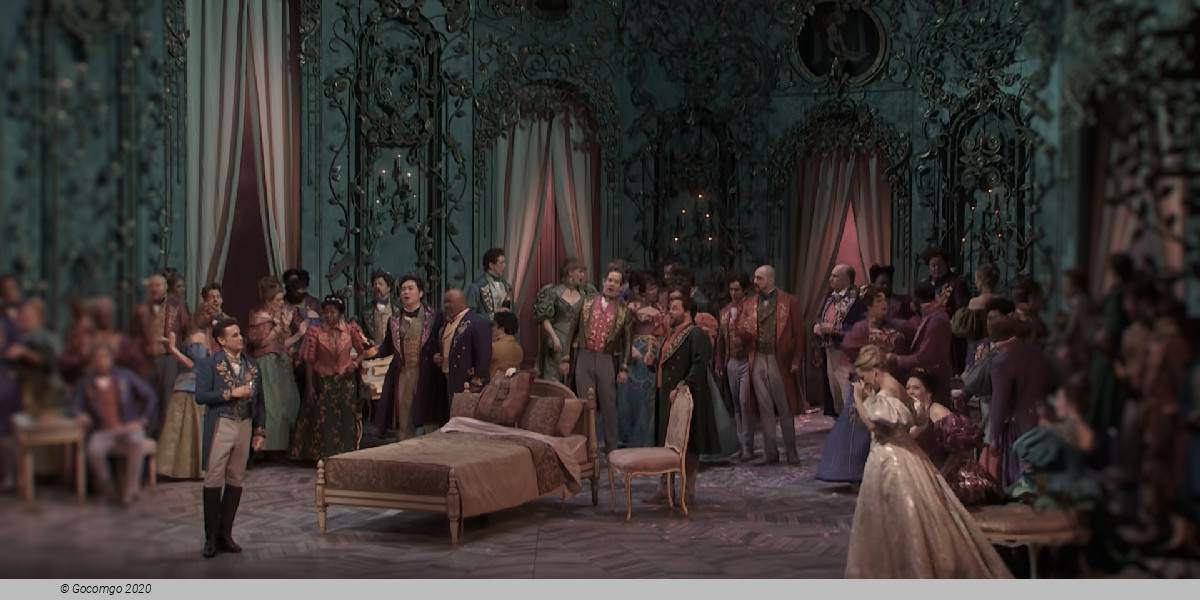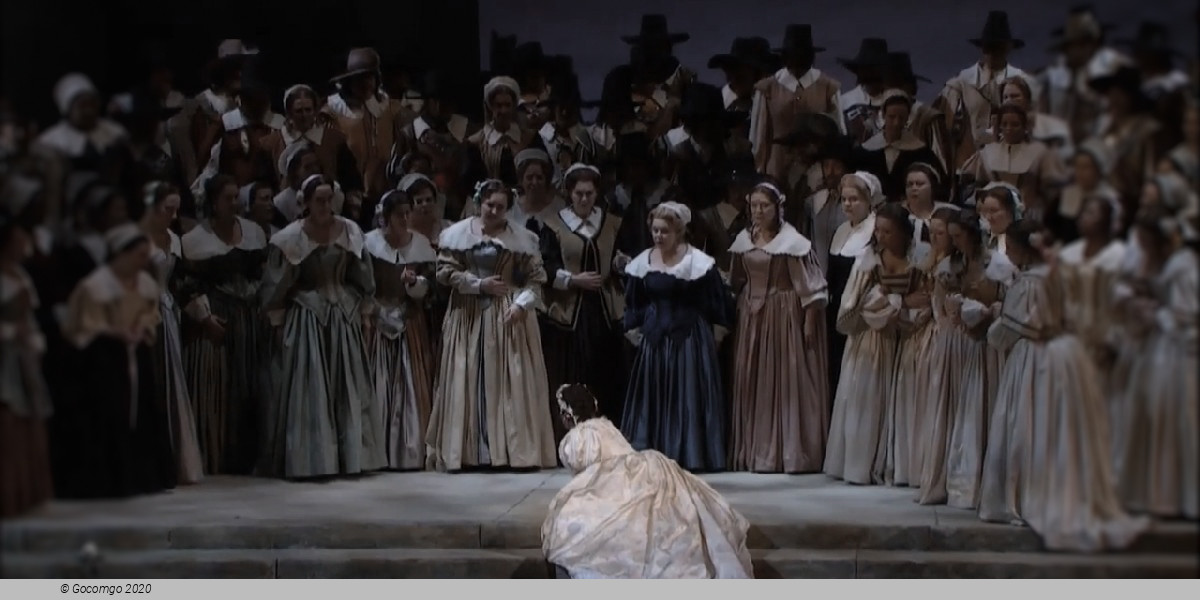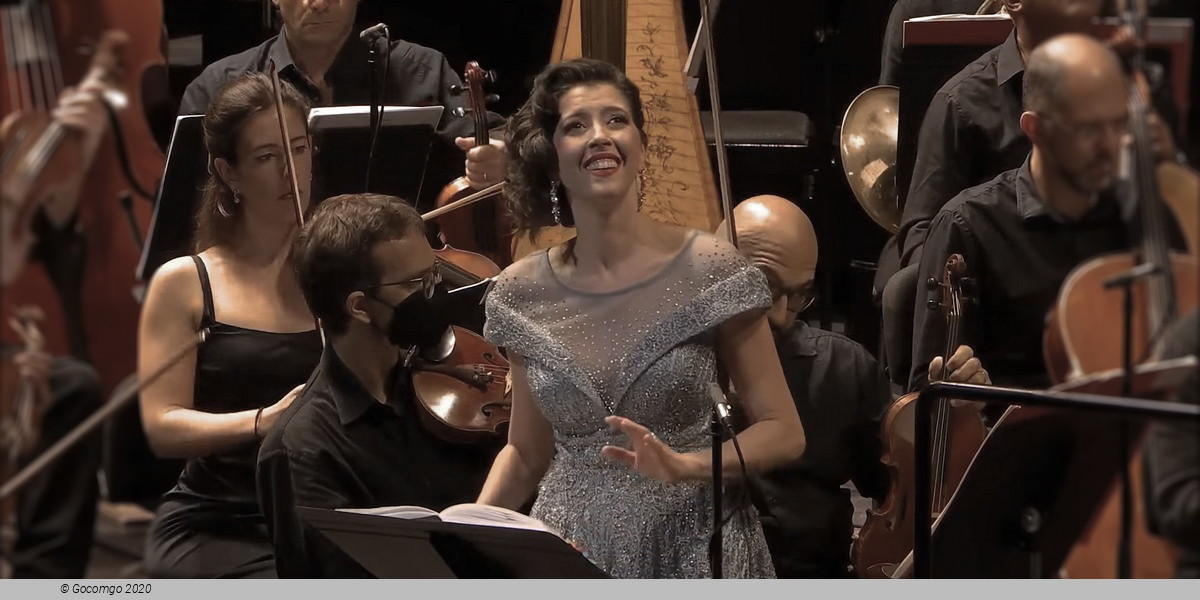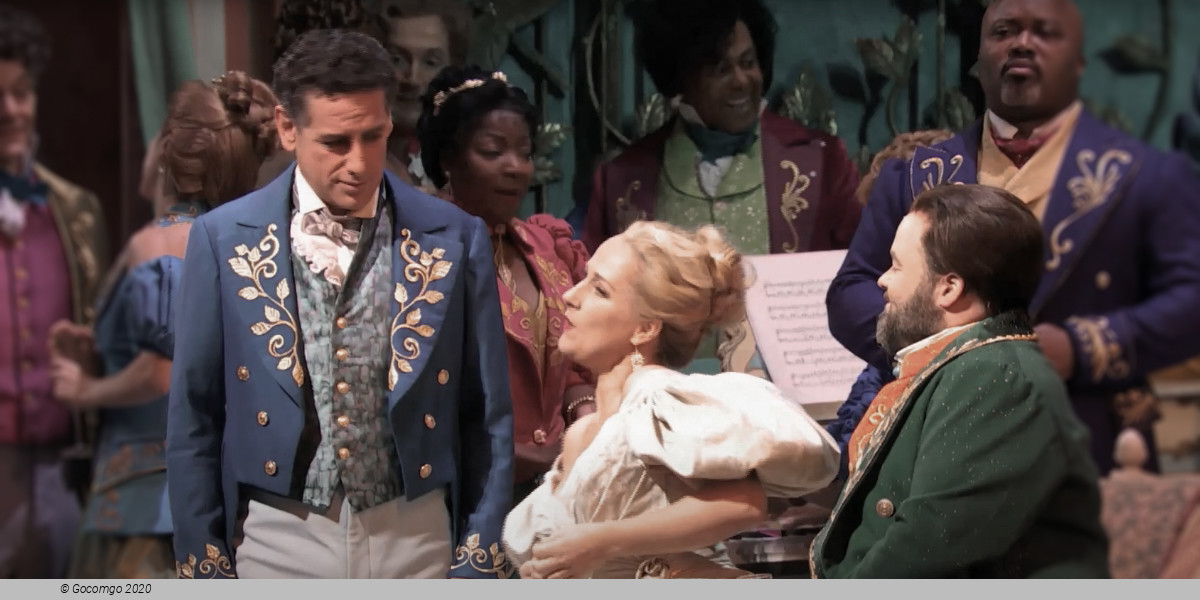Events33 results
Gallery
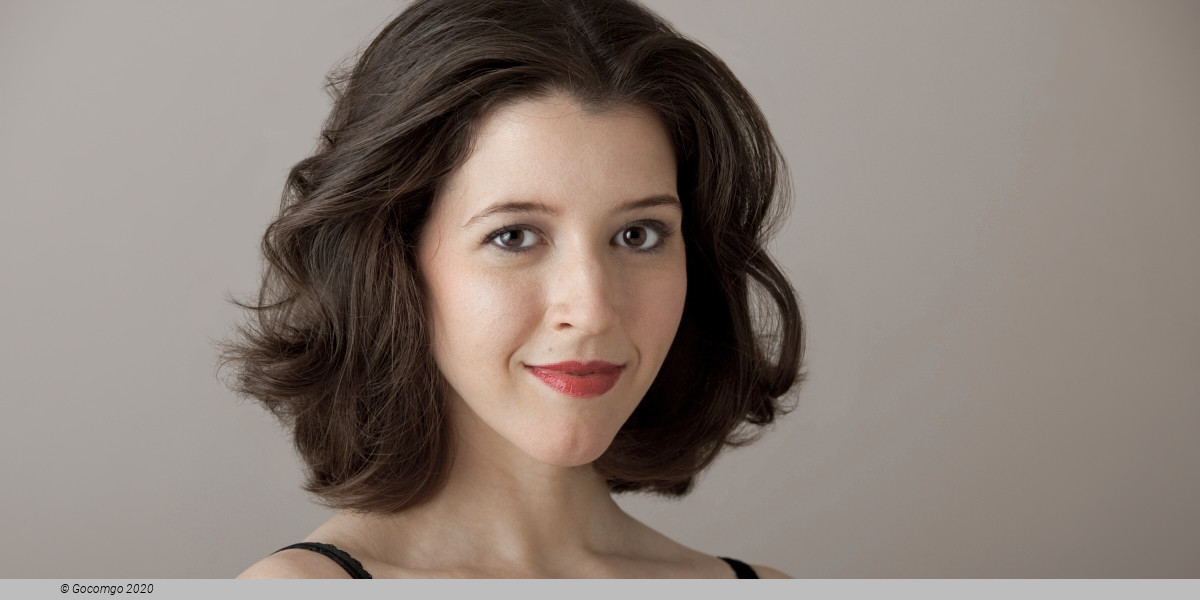
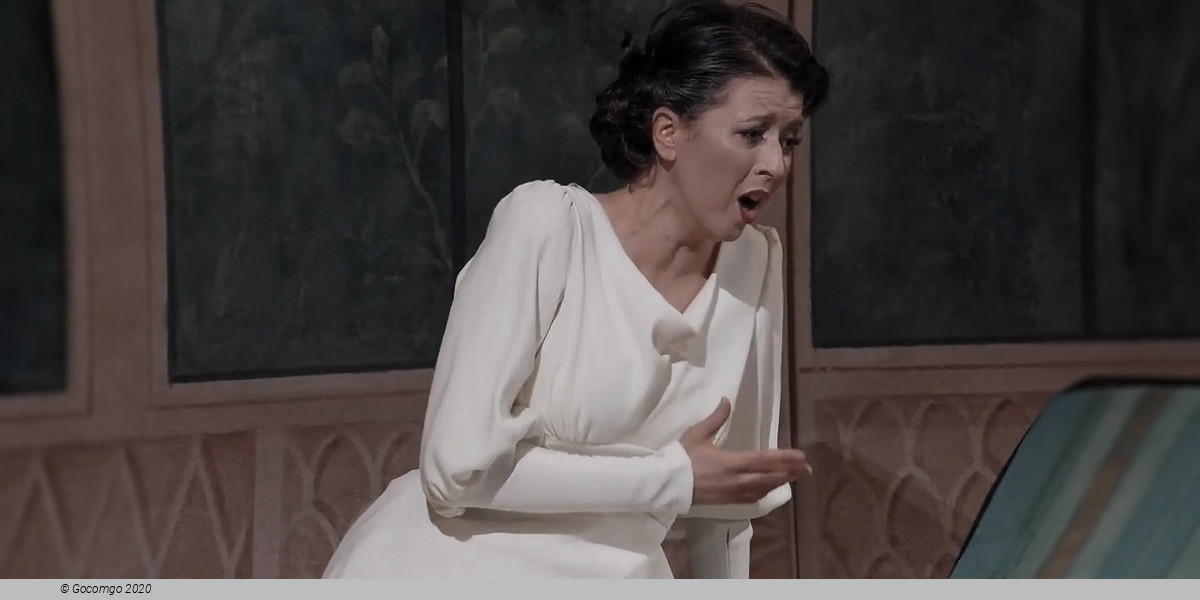
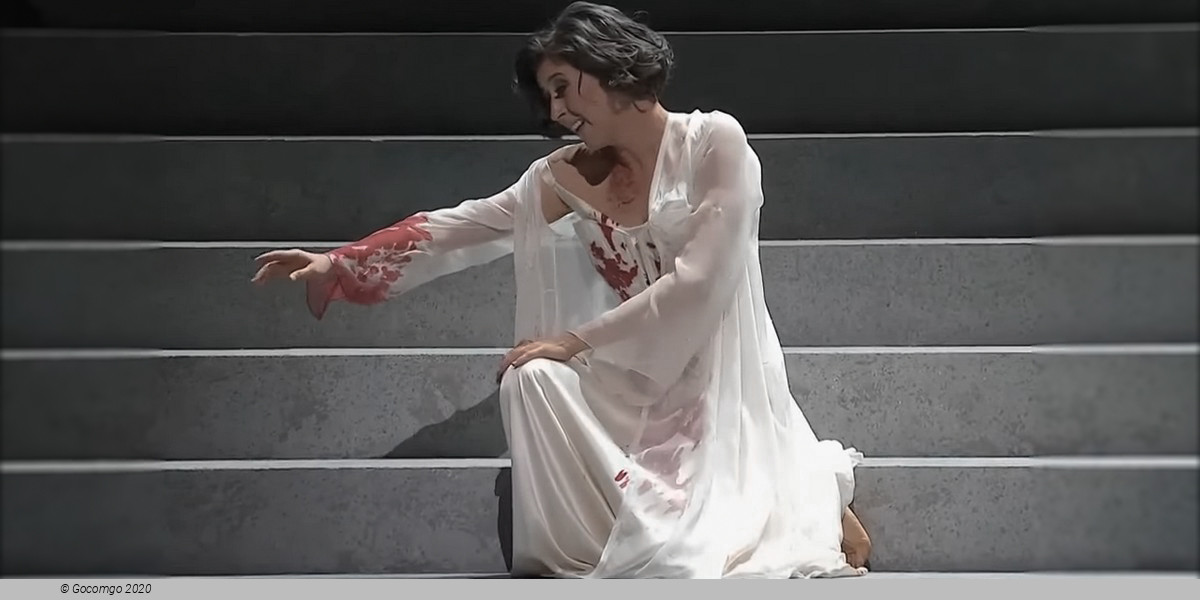
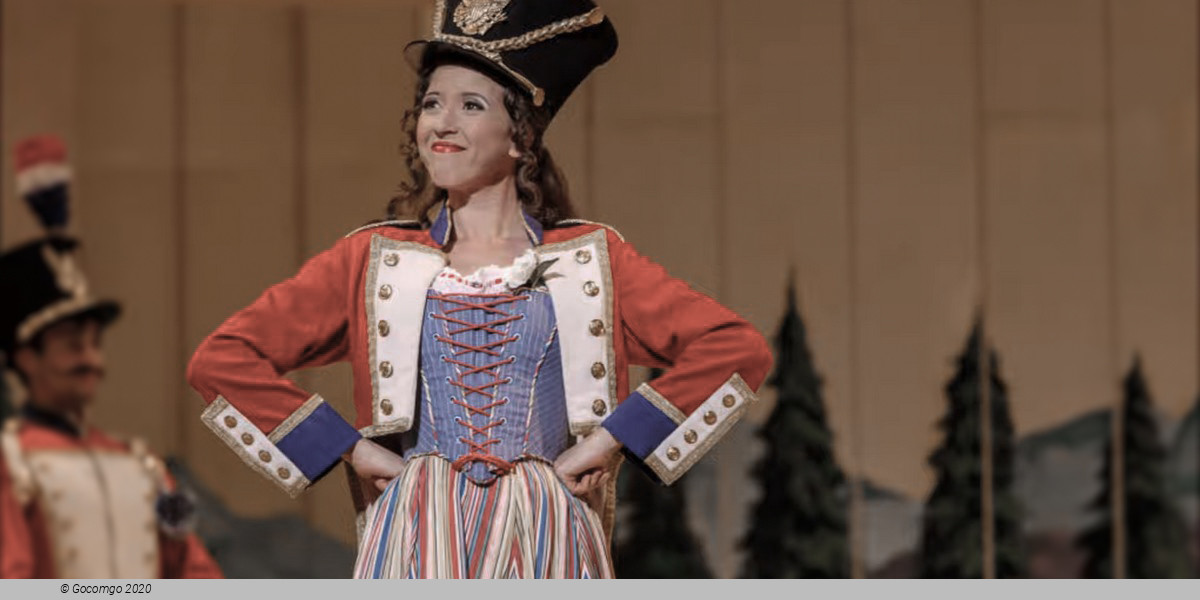
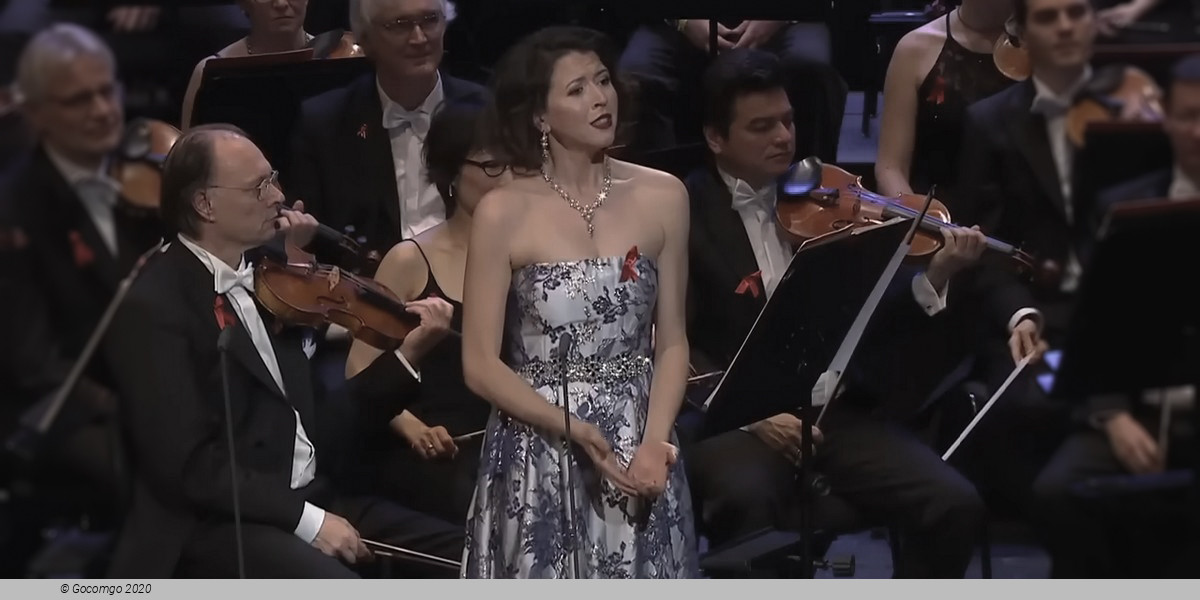
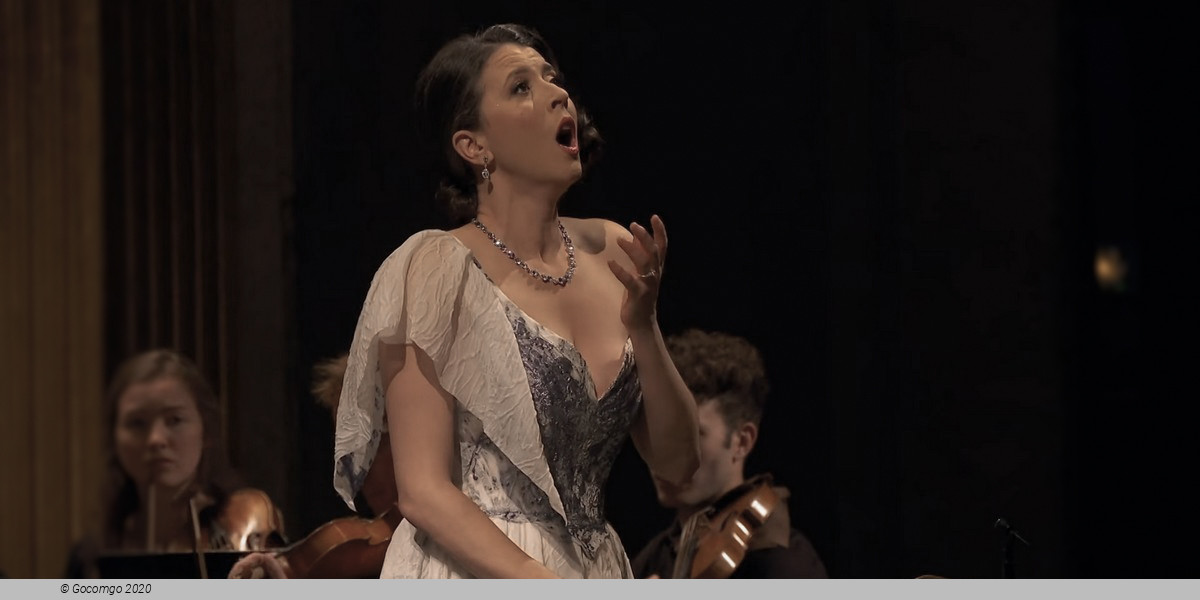
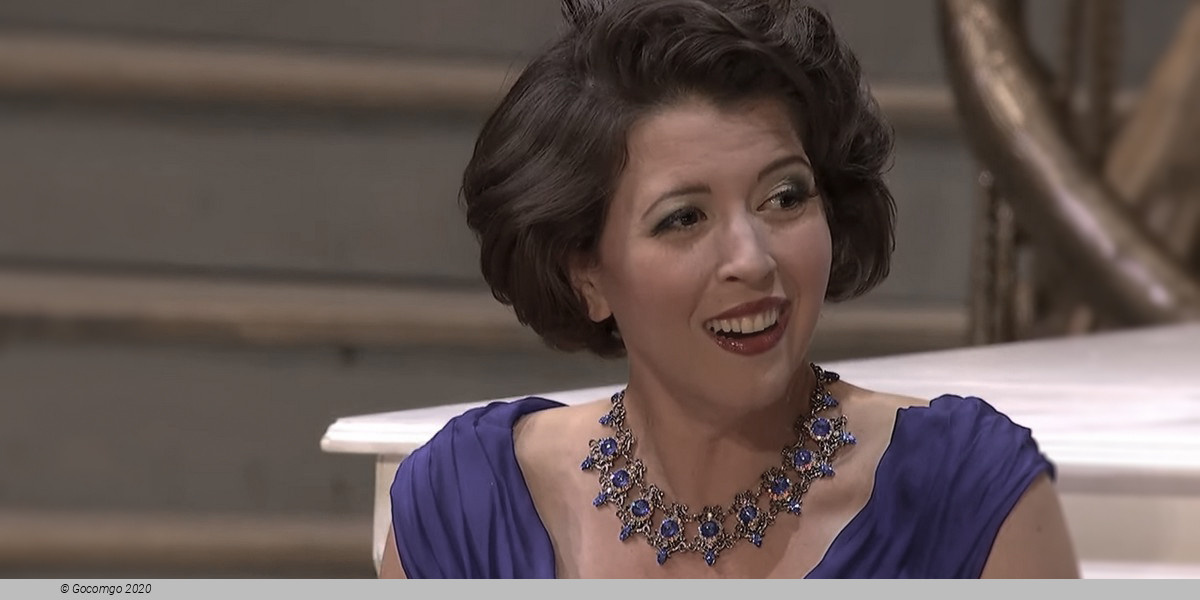
About
Lisette Oropesa (born September 29, 1983) is an American operatic soprano. She has a wide repertoire that includes works from Gluck, Handel, Mozart, Rossini, Donizetti, Wagner, Verdi, Bizet, Massenet and Puccini. With her lyric coloratura soprano voice, she has performed roles in her native Spanish and English, as well as German, French and Italian. She is particularly noted in the roles of Susanna, Gilda, Konstanze and Lucia.
In 2015, she was a contributor to Master Singers: Advice from the Stage which includes interviews from famous opera singers about "analysis and awareness of their technique, art, interpretation and stagecraft".
Oropesa was a grand finals winner of the National Council Grand Finals at the Metropolitan Opera in 2005 and joined the Met's Lindemann Young Artists Development Program, from which she graduated in 2008. She made her Met debut in a small role in Jean-Pierre Ponnelle's production of Idomeneo, conducted by James Levine in September 2006, and then sang First Lay-Sister in their new production of Suor Angelica.
As substitute, she sang her first leading role at the Metropolitan Opera, appearing as Susanna in five performances of Sir Jonathan Miller's production of Le nozze di Figaro opposite Erwin Schrott's Figaro in October 2007, which was regarded as a great success.
Work at the Met in New York
In the 2007-08 season, Oropesa was seen in the Met's Hänsel und Gretel as the Dew Fairy and, in the 2008-09 season, in the role of Lisette in La rondine, opposite Angela Gheorghiu, Roberto Alagna, and Samuel Ramey in Nicolas Joël's production. She also sang the role of the Rhinemaiden, Woglinde, in the Met's 2009 Der Ring des Nibelungen, and additionally sang the off-stage role of the Woodbird in Siegfried.
In September 2010, she reprised her Rhinemaiden in the Met's season-opening production of Das Rheingold, for which she won a Grammy Award for Best Opera Recording in 2013. In May 2011, she sang the part of the god Amor in Mark Morris's production of Orfeo ed Euridice. In December 2011, she created the role of Miranda in the Met's baroque pastiche, The Enchanted Island, singing opposite Plácido Domingo, and conducted by William Christie.
The end of the 2012-13 season culminated with her singing as Gilda in Rigoletto and as the Waltvogel in Siegfried where she was well received in both productions: "Her pure, smooth soprano and alert presence were both endearing"...including the bright yellow Forest Bird, beautifully sung from offstage by Lisette Oropesa."
The end of 2013 saw a successful opening of a new production of Falstaff at the Met, conducted by Levine. According to The New York Times, "with the role of Nannetta, the winning soprano Lisette Oropesa, sings with effortless grace and lyrical bloom."
In 2014, she starred alongside Jonas Kaufmann and Sophie Koch in the new production of Werther directed by Richard Eyre. The New York Times noted that "The bright-voiced, impressive soprano Lisette Oropesa is a sunny, winning Sophie."
At the beginning of 2016, Oropesa gave her first NYC solo recital with the Park Avenue Armory. According to Anthony Tommasini of The New York Times, she "gave a rewarding performance" and "brought uncommon freshness to this music".
Lisette returned to the Met in late 2017 for Hansel and Gretel where she was "she was fully committed to arguably the most demanding of roles in this particular opera".
Performances elsewhere
The soprano has appeared with the Welsh National Opera as Konstanze in Die Entführung aus dem Serail; with the Deutsche Oper am Rhein in Il turco in Italia; at the Tanglewood Music Festival as Konstanze; at the Ravinia Festival as Susanna in Le nozze di Figaro, conducted by James Conlon; for Opera New Jersey as Lucia in Lucia di Lammermoor; at Arizona Opera as Gilda in Rigoletto, again as Lucia; and at the New Orleans Opera as Gilda and as Leïla in Les pêcheurs de perles.
In April and May 2012, Oropesa appeared with the Pittsburgh Opera as Konstanze in a production of Die Entführung aus dem Serail set on the Orient Express in the Pasha's private train car. In October 2012, she again performed the role of Lucia with the Arizona Opera to success. In November, she continued her success by performing the role of Cleopatra in Michigan Opera Theatre's Giulio Cesare to acclaim.
In 2013, the soprano sang the role of Pamina in Die Zauberflöte at Florida Grand Opera and reviews were universally positive, as noted in several: "Oropesa was beyond fantastic in her portrayal of Pamina." "Her aria 'Ach, ich fühl’s', sung as she believes Tamino no longer loves her, was genuinely moving ..."
That summer resulted in Oropesa's continued operatic triumphs as Susanna in Le nozze di Figaro at the Santa Fe Opera: "Nothing in the evening surpassed her rendition of "Deh vieni, non tardar" in act 4, in which she spun strands of magic in the evening air" noted critic James Keller. Later in 2013, she sang the role of Amalia at the Washington Concert Opera for Verdi's I Masnadieri in which she "achieved total triumph as Amalia, the trill-filled part created for Jenny Lind."She was also called in as a last minute replacement for Nannetta in San Francisco Opera's Falstaff.
After her performances at the Met in early 2014, Oropesa's summer schedule included many concerts. These included Haydn's The Creation in New York and in Cleveland;the St Matthew Passion in Chicago; Die Entführung aus dem Serail in Bellingham, Washington; and a reprise of her 2010 performance in Le nozze di Figaro at Ravinia Festival.
Opera engagements included Nannetta at the Dutch National Opera; Gilda at Grand Théâtre de Genève; and Konstanze at the Bavarian State Opera. Her last performance of 2014 was her debut at the Los Angeles Opera as Rosalba in Daniel Catán's Florencia en el Amazonas.
In 2015, she started the year at the Paris Opera as Konstanze with success. According to Lorenzo De Vecchi, she sung "Marten aller Arten" with "incisive accents and passionate acting". Her next performance was at the Concertgebouw where she received a standing ovation for her rendition of "Caro Nome" in a recorded radio performance of Rigoletto. She returned home to New Orleans to be acclaimed as Susanna. According to The New Orleans Advocate, she "offered a fine display of vocal versatility, from the lilting coloratura of a young woman in love to the confusion and anger of the object of the lascivious intentions of her overlord, Count Almaviva". She then went on to a highly successful role debut in La fille du régiment at Pittsburgh Opera "Oropesa’s Marie lacked neither virtuosity nor personality. With solid high notes, accurate coloratura and an endless supply of golden-age trills (I stopped counting after five), this endearing artist ran a vocal marathon that might have paralleled the physical feat she was preparing to run in Pittsburgh Marathon the next morning". Her next engagement was with the San Francisco Opera in Le nozze di Figaro. A review wrote, "Oropesa is a charming Susanna. Her voice has a gorgeous delicate quality to it but still has volume. Her "Deh vieni, non tardar" was unstrained and she managed to do a perfect martial arts flip of Figaro when she loses her temper with him later in the act". She went onto another extremely successful debut in La traviata at the Philadelphia Opera "Oropesa manifested secure technical chops—trills, staccati, pinpoint dynamics and—most impressively—a long, sustained line that allowed her to hold the audience breathless in both “Dite alla giovine” and the party scene ensembles". In November, she was brought in for nearly back to back performances of Rigoletto and Die Entführung aus dem Serail with the Bayerische Staatsoper due to cancellations. She then finished the year with a performance of Rigoletto with the Teatro Real in Madrid in which she was a "Triumph".
In 2016, Oropesa performed many concert works, starting in Rome at the Accademia Nazionale di Santa Cecilia with Fauré's Requiem, she then went to Baltimore to sing with Eric Owens in the Ein deutsches Requiem. Next, she performed Mahler's Symphony No. 8 with Yannick Nézet-Séguin and the Philadelphia Orchestra. Her next concert was in Cincinnati with James Conlon in his last season with the Cincinnati May Festival. She was then found in Munich performing for the UniCredit Festspielnacht. Her next operatic role was a brand new production of Les Indes galantes with the Bavarian State Opera to which she performed to acclaim. "Makellos die Solisten: Herausragend agieren – in edlen Kantilenen und rasanten Koloraturen – Lisette Oropesa". She then returned stateside to Washington, D.C. where she reprised her role as Susanna for the Washington National Opera in Le nozze di Figaro. "Oropesa made this notable role her very own, deftly and intelligently adapting to every negative plot twist with a fine sense of theater and with a bright, sunny soprano". With a quick stop to Dallas to sing with the Dallas Symphony Orchestra in Ein deutsches Requiem, she was back in Washington, D.C. to perform as Marie in La fille du régiment again with the Washington National Opera. This time, her stage partner was Supreme Court Justice, Ruth Bader Ginsburg. According to Arnold Saltzman, Oropesa "sang flawless runs and coloratura, acted in the humorous tradition of Carol Burnett, moved like a prima ballerina, and used vocal coloring for best emotional effect. Her pianissimo, crescendo and decrescendo were breathtaking." Oropesa finished off the year, returning to Rome to debut at the Teatro dell'Opera di Roma to perform in Rigoletto.
In 2017, she started her year at the Lausanne Opera, performing her first Ophélie in Hamlet. Jacques Schmitt from ResMusica wrote, "She does not have the stratospheric highs that Natalie Dessay had (who will ever have them?). She does not have her theatrical madness either. And yet, with "her" Ophélie, she offers a voice and theatrical character that is overwhelming with love, despair, ingenuity and authenticity as it is rare to see and hear." She then went to Washington, DC to perform in recital, which was highly praised. "The evening opened with “Ragion nell’alma siede,” an aria from Haydn’s opera Il mondo della luna. It was a gutsy move, and Oropesa easily filled the smaller venue with sound. The accuracy during runs was striking, as were the highest notes, all produced with facility. Her tone turned especially limpid on the little cadenza." This performance was recorded on video and was released to YouTube, culminating into the creation of her first album titled Within/Without. Next, she was in Munich for a performance of Die Entführung aus dem Serail with the Bayerische Staatsoper, making it her fourth year in a row of performing this role there. She then went on to perform a new production of Rigoletto at the Dutch National Opera directed by Damiano Michieletto, in this well-reviewed production, she was noted as being "Slender and graceful, soprano Lisette Oropesa was simply world-class as Gilda, with flawless emission and generous top notes, crystalline up to high E. The long trill at the end of “Caro nome” would have traced a perfect zigzag on a pitch visualiser. Even more stunning than her bravura was the melting glow at the centre of her voice, her morbidezza (softness)." Shortly after, she stepped in for two performances of Rigoletto at the Paris Opera, filling in for an ailing singer. She was reported to have received a standing ovation for her interpretation. She spent the summer debuting the role of Norina in Don Pasquale at Glyndebourne where she received accolades in the role. She was next heard in Paris for a concert of Falstaff with the Orchestre de Paris where she announced it would be the last performance of Nannetta she will sing. She then went on to debut at the Royal Opera House in the title role of Lucia di Lammermoor. She was given universally rave reviews for her interpretation. "Lucia is her first Royal Opera role, and the Cuban-American soprano is sensationally good." She was given standing a ovation for her performance.
In 2018, Lisette returned to the Bavarian State Opera to perform her signature role as Konstanze in Die Entführung aus dem Serail for the fourth year in a row. Next, she gave a recital for the Tucson Desert Song Festival where she performed a brand new recital set and released her first music video "Adieux de l'hôtesse arabe", a Georges Bizet composition based on a poem by Victor Hugo. From this recital, Lisette digitally released her second album entitled, "Aux filles du désert". Next, she performed in a new production of Orfeo ed Euridice by John Neumeier and the Joffrey Ballet at the Los Angeles Opera. Lisette "moved across the stage like a phantom presence" according to LA Weekly. She once again returned to the Los Angeles Opera to perform her signature role as Gilda in Rigoletto, "Her “Caro nome” was a veritable how-to manual on holding an audience enraptured". Lisette then went to the Teatro Real in Madrid to perform in Lucia di Lammermoor where she received "enormous" standing ovations for her interpretation of the role. During the summer, she debuted at the Rossini Opera Festival in Rossini's Adina which was also a role debut for her. She was "Considered by many to be this year's revelation of the ROF.". The day before her second performance of Adina, she sang her first ever solo concert with orchestra with the Philharmonic Gioachino Rossini. Her concert was hailed as "One of the most memorable concerts in the 39 year history of the Rossini Opera Festival." In September, Lisette replaced Diana Damrau, who withdrew due to illness, as Marguerite de Valois at the Paris Opera in the company's new production of Les Huguenots where she "comprehensively conquered the hearts of the Paris audience." The day after her final performance of Les Huguenots, she premiered another brand new role of Adina in L'elisir d'amore with a "Timbre ardent, projection homogène sur toute la tessiture, vocalises agiles, aigus scintillants." She then opened the season at the Teatro dell'Opera di Roma in a brand new production of Rigoletto. For her performance she was hailed as being "perfetta la Gilda".
In 2019, Lisette returned to her hometown of Baton Rouge, Louisiana to give a concert with Paul Groves called "A Starry Night with Lisette Oropesa" which was recorded for broadcast on Louisiana Public Broadcasting. She then went to Barcelona to perform in Rodelinda. She was lauded for her performances with "sylistic mastery", "technique without weaknesses", and "spectacular coloratura."


